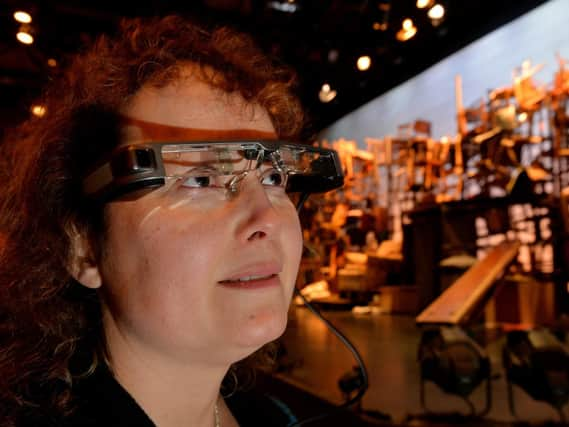The hi-tech OXSIGHT glasses helping a visually impaired Hull woman


Hull University senior lecturer Bethan Jones, 47, particularly struggles in dim lighting and with night blindness due to an undiagnosed condition she has had since birth that means aspects of her sight – particularly her peripheral vision – are slowly degenerating.
But friends told her about OXSIGHT, a company which creates special glasses for visually impaired people.
Advertisement
Hide AdAdvertisement
Hide AdControlled with a hand-held console, the OXSIGHT Crystal glasses that Dr Jones is using are fitted with a camera which streams a live feed into two high-resolution video displays.
These screens are placed directly in front of the eyes and the images produced are manipulated to fit into the wearer’s area of useable vision.
A cinema and theatre fan, the mother-of-one used the glasses to watch a production of Kes at Leeds Playhouse on Tuesday evening.
The glasses have seven modes, with features including: increased image contrast, super colour mode, text detection, edge enhancement, inverted colour, and a digital zoom to allow users to magnify objects and obstacles.
Advertisement
Hide AdAdvertisement
Hide AdThe edge enhancement has proved particularly useful for Dr Jones to avoid bumping into things.
Dr Jones, who teaches English literature, said that when she goes into a bar or restaurant with “atmospheric lighting”, it can be “near blackness” for her.
But she said: “It’s got enormous potential because already a lot of people are finding – and people with much worse vision [than me] – that they are going from being able to see almost nothing to see really quite a lot. It’s quite life-changing in that respect.”
Dr Jones, who is married to actor Clive Kneller, said: “It’s really hopeful and I’m enthusiastic about where this technology could go in the next five, 10, 20 years.”